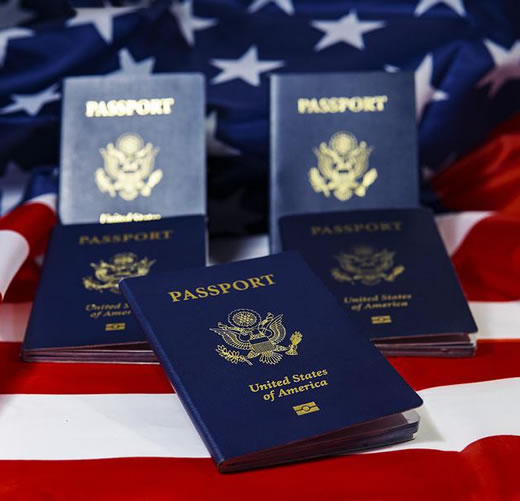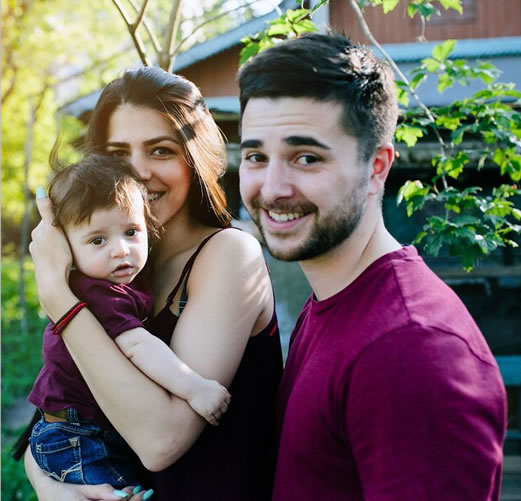VISAS
- Home
- Services
- Visas
VISAS
What To Do Next
Have you been told you need a Visa and don’t know what to do next? Here is some background information to get you started on your journey to the United States.
What is an American Visa?
A Visa is an official stamp in your passport that allows you to travel, work, or study in the United States for a certain period of time. Usually, you get the stamp at an American embassy or consulate in your home country.
The U.S. requires foreign workers to apply for and receive a work permit. Without a Work Permit Visa, it is against the law for anyone to hire you.
Presenting the Visa in your passport doesn’t guarantee you entry into the United States because the Customs and Border Protection has discretion in allowing any person to enter the country. However, your Visa makes it much more likely you will be allowed to enter the country.
Let’s take a look at some of the most common types of Immigrant Visas.
What is an American Visa?

Family-Based Immigrant Visas

Family-Based Immigrant Visas
A foreign citizen seeking to live permanently in the United States requires an Immigrant Visa (IV). To be eligible to apply for an IV, a foreign citizen must be sponsored by an immediate relative who is at least 21 years of age and is either a U.S. citizen or U.S. Lawful Permanent Resident (that is, a Green-Card holder).
There are two types of Family-Based Immigrant Visas:
Immediate Relative – these Visas are based on a close family relationship with a U.S. citizen, such as a spouse, child or parent. The number of immigrants in these categories is not limited to each fiscal year.
Family Preference – these Visas are for specific, more distant family relationships with a U.S. citizen and some specified relationships with a Lawful Permanent Resident (LPR). The number of immigrants in these categories is limited each fiscal year.
Family Preference – these Visas are for specific, more distant family relationships with a U.S. citizen and some specified relationships with a Lawful Permanent Resident (LPR). The number of immigrants in these categories is limited each fiscal year.
Keep In Mind That U.S. Citizens Can File An Immigrant Visa Petition For Their:
Spouse
Son or daughter
Parent
Brother or sister
U.S. Lawful Permanent Residents Can Only File An Immigrant Visa Petition For Their:
Spouse
Unmarried son or daughter
Employment-Based Immigrant Visas
To work in the United States temporarily as a lawful nonimmigrant, temporary workers must qualify for the available Visa category based on the planned employment purpose.
Every fiscal year (October 1st – September 30th), approximately 140,000 Employment-Based Immigrant Visas are made available to qualified applicants under the provisions of U.S. immigration law. Employment-Based Immigrant Visas are divided into five preference categories. Certain spouses and children may accompany or follow-to-join Employment-Based Immigrants.
Employment-Based Immigrant Visas

The First Steps Toward An Immigrant Visa: Labor Certification And Filing A Petition
To be considered for an Immigrant Visa under some of the Employment-Based categories below, the applicant’s prospective employer or agent must first obtain a labor certification approval from the Department of Labor. Once received (if required), the employer then files an Immigrant Petition for Alien Worker, Form I-140, with the U.S. Citizenship and Immigration Services (USCIS) for the appropriate Employment-Based preference category.

This is a list of the Employment-Based subcategories:
Employment First Preference (EB-1): Priority Worker and Persons of Extraordinary Ability
Employment Second Preference (EB-2): Professionals Holding
Advanced Degrees and Persons of Exceptional Ability
- Employment Third Preference (EB-3): Skilled Workers,
Professionals, and Unskilled Workers (Other Workers)
Employment Fourth Preference (EB-4): Certain Special Immigrant
Employment Fifth Preference (EB-5): Immigrant Investors
*Extraordinary ability is defined by the U.S. Citizenship and Immigration Services (USCIS) as “through sustained national or international acclaim. Achievements must be recognized through extensive documentation.”
*Extraordinary ability is defined by the U.S. Citizenship and Immigration Services (USCIS) as “through sustained national or international acclaim. Achievements must be recognized through extensive documentation.”
**Exceptional ability refers to “expertise significantly above what is ordinarily encountered” in your field.
Adoption-Based Immigrant Visas
Intercountry Adoption is the process of adopting orphans currently outside of the U.S., which is one of the Department of State’s highest priorities. The U.S. government believes it should be an option for children in need of permanent homes when it is in the best interest of the child, and domestic solutions have been given due consideration. Each year, thousands of U.S. citizens adopt children from abroad, and families habitually resident in other countries also adopt children from the United States.
Intercountry adoption is the process by which you adopt a child from a country other than your own through permanent legal means and then bring that child to your country of residence to live with you permanently.
Adoption-Based Immigrant Visas

Diversity Immigrant Visa

Diversity Immigrant Visa
The Diversity Immigrant Visa Program (DV Program) makes up to 50,000 immigrant Visas available annually, drawn from random selection among all entries to individuals who are from countries with low rates of immigration to the United States. The DV Program is administered by the U.S. Department of State (DOS).
Most lottery winners reside outside the United States and immigrate through consular processing and issuance of an immigrant Visa.
Diversity Visa Winners Legally Residing in the United States: Apply Through USCIS
There are, however, a small number of lottery winners each year who, at the time of “winning the lottery,” are residing in the United States in a nonimmigrant or other legal status. For these winners residing inside the United States, USCIS processes adjustment of status applications.
Take a look at our Green Cards FAQ to learn more about Green Cards.
It is our goal to get you Legal Immigration Status.
Diversity Visa Winners Legally Residing in the United States: Apply Through USCIS

FAQ
U.S. Visas FAQ
Your spouse and any unmarried children under 21 may apply for Immigrant Visas with you based on your approved petition. They fill out application forms, obtain the required civil documents, pay the fees, and undergo the medical examinations. All same-sex spouses of U.S. citizens and Lawful Permanent Residents (LPRs) and minor children are eligible for the same benefits as opposite-sex spouses. Consular officers at the U.S. Embassies and Consulates adjudicate their Immigrant Visa applications upon receiving an approved I-130 or I-140 petition from USCIS.
Call (866) 800-1599 NOW to speak with one of our Immigration Specialists or CLICK HERE. Phone lines are open 24/7. Currently seeing clients/prospective clients by appointment only. Hablamos español.
Have you been told that you are not eligible for Legal Immigration Status? Call (866) 800-1599 NOW for a FREE second opinion from one of our Immigration Specialists. Hablamos español.
Still Have Immigration Questions?
If you have questions about legal immigration, one of our Immigration Specialists can easily help you with:

Citizenship Applications

Family Petitions
Green Cards

Work Permits

Deportations

And More!
Call +1 (866) 800-1599 NOW for FREE help from one of our Immigration Specialists.
Phone lines are open 24/7.
Currently seeing clients/prospective clients by appointment only.
Hablamos español.
